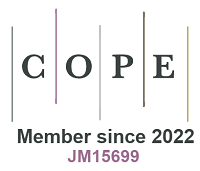Review | Open Access
Chemical bonding strategy on boosting superior Li+ diffusion kinetics towards long-stable lithium metal anode
Views: 26
Chem. Synth. 2025;5:[Accepted].
Author Information
Article Notes
Cite This Article
Abstract
With the fast development of electronics, electric vehicles and electric airplanes, lithium metal battery (LMB) with high-energy-density attracts increased attention for the long-voyage-capability. However, the dendrites from uneven Li platting may cause serious safety issues, especially under low temperature conditions, thus limiting the practical application of LMB. Tremendous efforts to develop various Li host based on thermodynamics, trying to provide lithophilic sites for homogeneous deposition, did not yet push the Li anode cycle life long enough to compete with current graphene anode, especially under harsh conditions, such as subzero temperature. The focus of this review is on the recent progress in chemical bonding strategies for boosting lithium ions/atoms (Li+/Li) transport via liquid, interphase, and solid phases through rational design of electrolytes, interphase, and Li host. Research results on understanding the working mechanism of chemical interaction between Li+/Li and other molecules in bulk electrolyte, interphase, or electrode during charge/discharge are discussed. These understandings may provide new perspectives on designing advanced LMB system.
Keywords
Li+/Li transport kinetics, diffusion kinetics, solvation structure, desolvation, nucleation kinetics, deposition kinetics
Cite This Article
Mushtaq F, Tu H, Zheng Y, Zhang Y, Wang Z, Hou M, Liu M, Chen K, Liang F, Liu J, Liu F, Zou B, Xue D. Chemical bonding strategy on boosting superior Li+ diffusion kinetics towards long-stable lithium metal anode. Chem. Synth. 2025;5:[Accept]. http://dx.doi.org/10.20517/cs.2024.66
Copyright
© The Author(s) 2025. Open Access This article is licensed under a Creative Commons Attribution 4.0 International License (https://creativecommons.org/licenses/by/4.0/), which permits unrestricted use, sharing, adaptation, distribution and reproduction in any medium or format, for any purpose, even commercially, as long as you give appropriate credit to the original author(s) and the source, provide a link to the Creative Commons license, and indicate if changes were made.












